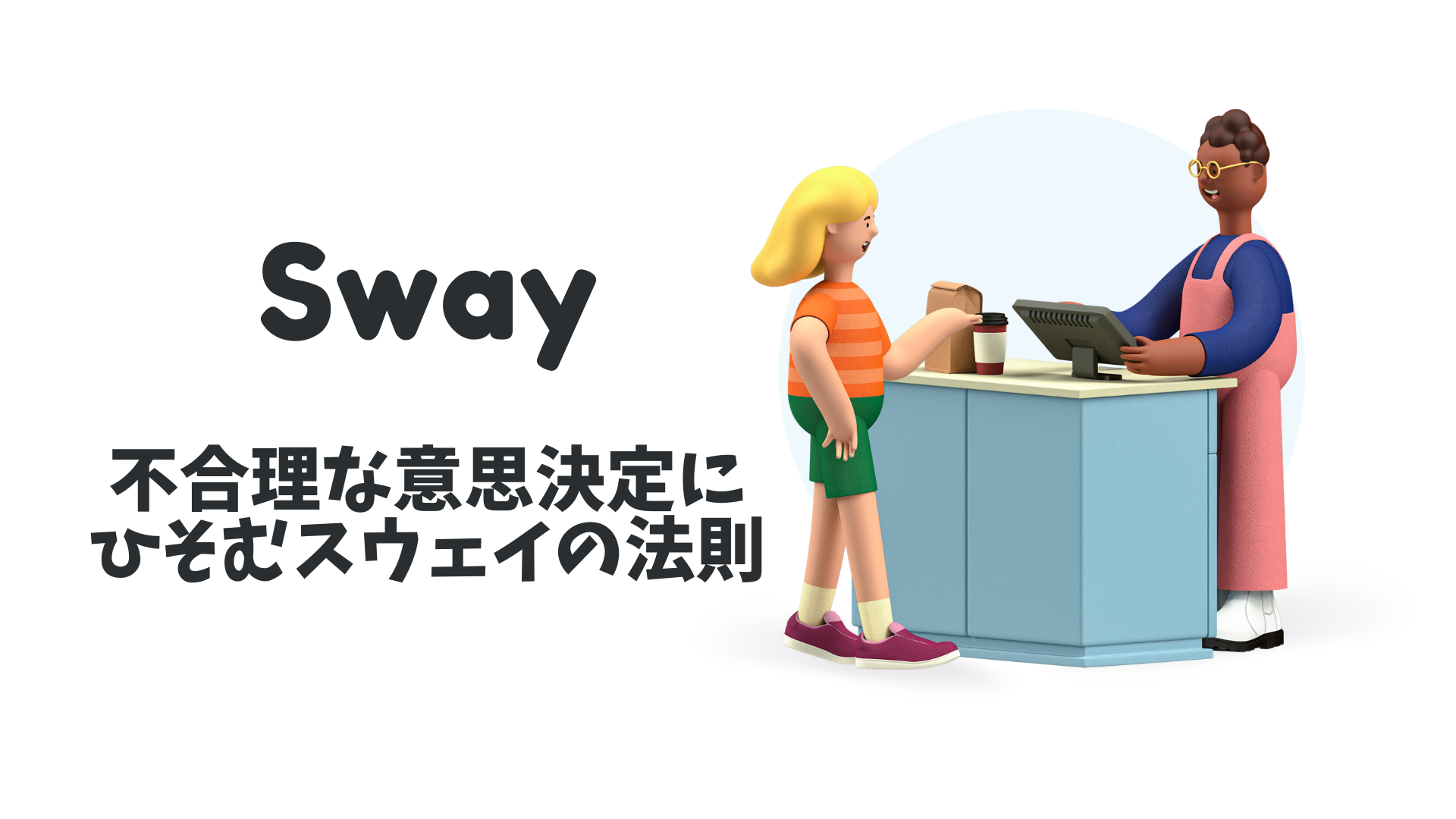
英語でSway を読もう📖#4
For English learners!
Hello everyone, how’s your English learning journey going?😃 Reading an English book is sometimes a long journey. You might inadvertently stop if you are alone. But no worries. You are at the right place already. I would like to explore an English book here so that you can try reading the book with me. We are not alone. Let’s enjoy a fun time reading!
The book, which I picked up this time, is called Sway, published by Ori Brafman and Rom Brafman. When I read this book for the first time, I was surprised that contrast that topic is academic and interesting, the volume of the book was not that big!!! The Amazon Kindle link below allows you to read chapter 1. Today, I am covering chapter 4.
You can check out my recommending strategy of reading as well as a bit of information about this book with a link below. Okay then, let’s get started📖
日本語学習者のみなさん!
みなさん、こんにちは。あずみです。日本語の勉強はどうですか?やさしい日本語で読むのに飽きてきたあなたに、もうワンランク上のリーディングをお届けしたい、ここはそんなブログです。英語部分で私が書いていることを、日本語で書くならこんな感じというのがテーマです。ぜひ、カジュアルな日本語のライティング表現を体験しながら、同時に興味深い本の内容も楽しんでボキャブラリーの幅を広げてくださいね。😃
英語の勉強、はかどってますか?英語の本を読むのって長い旅路ですよね。うっかり止まって挫折してしまうのはとても簡単です。でもこのブログを読んでいるあなたはだいじょうぶ。そんなあなたを応援するのがこのブログです。このブログで私は本を取り上げ、掘り下げていきたいと思いますので、よかったら私といっしょにこの本にチャレンジしてみてください。
今回読む本は、オリ・ブラフマンとロム・ブラフマンの共著Swayです。はじめて読んだ時、その学術的な内容に比してボリュームが小さく読みやすいことに感動しました。マゾンキンドルのリンクから試し読みで確認してみてください。
また、既出のリンクの記事では英語の本のオススメの読み方について取り上げています📖ぜひ確認してみてくださいね。さぁ、4章を読みましょう。
Ch.4 Michael Jordan and the First-Date Interview
🪂第4章 マイケル・ジョーダンと初デート型採用面接
Grasp the structure🪂構成を把握する
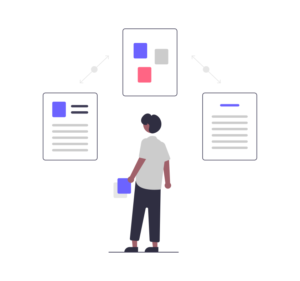
To grasp the chapter, you just try to see its hierarchical configuration. I strongly recommend drawing it either physically or virtually.
階層構造を追い、内容を把握します。実際にメモを取りながらするとはかどります。
Summarize the chapter concisely🪂章を簡潔にまとめる

To summarize, check the hierarchical configuration and make sentences with important points of each.
階層構造の各部分のポイントを確認して、文にしてまとめます。
When people encounter a new object, they assign its value based on what they perceived, which is called value attribution. Meanwhile, once they’ve made a diagnosis, they experience an inability to reconsider the judgment, which is called diagnosis bias. This label prevents them from seeing what’s clearly before their faces.
From the statistic of NBA players, you can see that their draft order numbers influence people’s perceptions and it consequently affects players’ longevity. From the study of job interviews, it is seen that people’s perceptions give too much credence to irrelevant factors that they consider more important, and it leads to poor outcomes. The most difficult psychological force people experience is spontaneous confidence in their own decision-making. It distorts them from seeing objective data.
人々は新しい物事に遭遇するとき、自分が感知したものに基づいてその価値を割り当てます。これは価値帰属と呼ばれます。一方、一旦下した診断を再考できなくなる傾向は、診断バイアスと呼ばれます。この物事に一旦貼り付けたラベルは、顔の前にはっきりと見えるものさえも見えないようにしてしまい、判断を狂わせるのです。
NBAプレーヤーの統計から、ドラフト時の指名順位が人々の認識に影響を与え、その結果プレーヤーの選手寿命に影響を及ぼすことがわかっています。就職採用面接の研究では、面接官がより重要であると考える、実際には無関係な要因に注意を削がれ、良い結果が出せないことにつながることがわかっています。人が経験する最も困難な心理的な力は、自然と発生する自分の判断力に対する自信です。それにって人は客観的な情報を見ようとしなくなります。
Make questions to discuss🪂ディスカッション用の質問を作ろう

To discuss, make questions. It gives you a great topic to talk about in English.
本について話し合うための質問を作ります。作った質問は英語で話をするときのいい話題になりますよ。
What is the message beyond this presentation? What are the greater issues or questions this piece deals with?
The presentation is not directly referenced in the question. There are many possible answers found outside of the presentation, but it’s a starting point.
このトピックが伝える、もっと大きなメッセージはなんでしょう?このトピックの先にどんな大きな問題が見えますか?
この質問は、このトピックと直接リンクする必要はありません。この話の外側にたくさんの答えがあるでしょう。でも、このトピックがいいスタートポイントになります。
My opinion: Being confident in one’s own decision seems to be crucial to survive in life. The problem is, would it be possible that we can be confident while being cautious that confidence prevents us from seeing other objective data? Being confident means picking one choice and trusting in it. If you are still cautious of something, then it is not trusted. Therefore, it is not realistic that people can find a solution against the diagnostic bias.
私の意見:自分の決断に自信を持つことは、人生を生きていくために重要であるように思います。問題は、自分が持つ自信が他の客観的なデータを見ることを妨げてしまうという事実に注意しながら、自信を持ち続けられるかどうかです。自信を持つということは、1つの選択肢を選び、それを信頼することを意味します。もし他の要素にも注意を払っているとすれば、選択肢を完全に信頼していないということです。つまるところ、人々が診断バイアスに対する解決策を見つられるかというと、現実的ではないように思います。
five questions for discussion🪂ディスカッション用の5つの質問
How does this make me feel? What does it remind me of?
There are many correct answers that are related to one’s experience; they can be found outside of the text/speech.
この箇所はどんな風に感じますか?何を思い出させますか?
個人の経験に関連するたくさんの答えが本文の外で見つけられることが考えられます。
What does it say?
One correct answer is found in the text.
なんと言っていましたか。
答えは一つです。テキスト内でみつけることができます。
What does it mean? How are the parts connected? what is the reason for people’s actions?
There is more than one possible answer, but the viewer’s opinion is based directly on the text.
ここはどういう意味でしょう?これらの箇所はどう繋がっていますか?この行動にはどんな意味がありますか?
答えは2つ以上考えられますが、質問の答えは本文に直接基づいている必要があります。
What is the message beyond this presentation? What are the greater issues or questions this piece deals with?
The presentation is not directly referenced in the question. There are many possible answers found outside of the presentation, but it’s a starting point.
このトピックが伝える、もっと大きなメッセージはなんでしょう?このトピックの先にどんな大きな問題が見えますか?
この質問は、このトピックと直接リンクする必要はありません。この話の外側にたくさんの答えがあるでしょう。でも、このトピックがいいスタートポイントになります。
How effective is the presentation in whole or in part? Why did the speaker/author make these choices and how well do they work?
Many possible answers can be found outside of the presentation but it’s a reference.
この箇所は全体の中で/この部分においてどう効果的な役割を果たしていますか?どうして話者はこのような表現をしましたか、またそれはどのように機能していますか?
たくさんの答えが本文の議論の外でひとつの例としてみちびかれる可能性があります。
Expressions and terms🪂覚えておきたい単語・表現

Pick some terms that you are unfamiliar with from sentences you high-lightened and memorize them because you need them to discuss this chapter!!
読みながらハイライトした特に重要だと思う文の中から、使い慣れていない言葉を選んで覚えましょう。なぜかというと、ディスカッションで意見や考えを言うために必要になるからです。
| term | example sentence |
|---|---|
| predict | “Joe Friday” interviews are six times more effective than first-date interviews at predicting a candidate’s job performance. |
| optimistic | we all become overly confident in our predictive abilities and overly optimistic about the future |
| contradict | we often ignore all evidence that contradicts what we want to believe |
| overcome | it’s harder to overcome this sway than we might think. |
| 単語 | 例文 |
|---|---|
| 予測する | 「ジョーフライデー」方式の面接は、候補者の職務遂行能力を予測する上で、初デートの面接よりも6倍効果的だ。 |
| 楽観的な | 私たちは皆、予測能力に過度に自信を持ち、将来について過度に楽観的になるものだ。 |
| 矛盾する | 人はよく、自分が信じたいと思うことに矛盾するすべての証拠を無視する。 |
| 克服する | この心理的な揺れを克服するのは思っている以上に難しい。 |
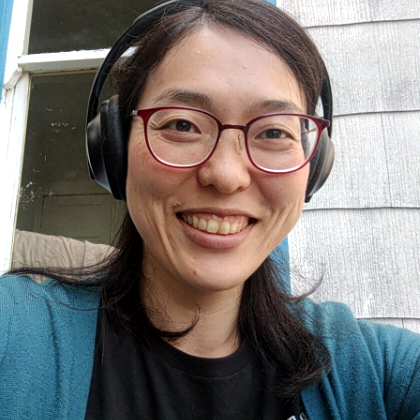
This chapter has explored the further depth of the force of value attribution. Once we assign a value to something, it would be super hard for us to remove. Because we are very confident on own decision-making. We even don’t consider this process as we do make a decision. It is more like, once you think, you just naturally believe then hardly wonder it. What do you think, can you come up with any solution against this force?
この章では、価値帰属の力のさらなる影響力を深く掘り下げていましたね。何かに価値を割り当てると、それを無しにするのは非常に困難になるという現象。人は自分の意思決定に非常に自信を持っているからです。私たちは決定を下すとき、このプロセスを考慮すらしません。一度何かを感じると、自然に信じて、以後それを疑問に思うことはほとんどないという感じです。あなたはどう思いますか、あなたはこの力に対する解決策を見つけられると思いますか?



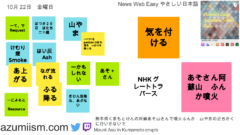
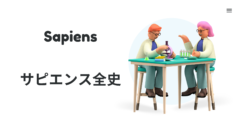
コメント